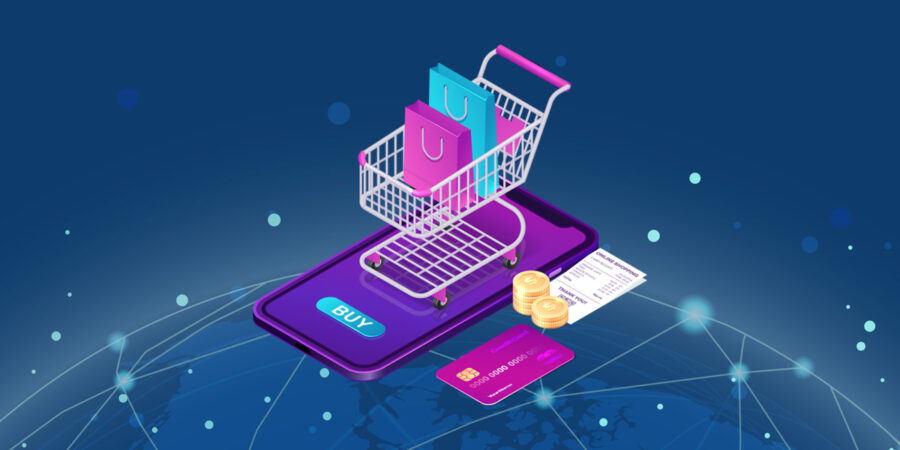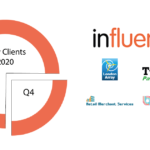Why an Azure ecommerce platform is dynamite for selling online
The percentage of UK shoppers using ecommerce reached 87 percent in 2020, up 25 percent since 2010. But with great opportunity comes high competition. So how can you stand out from the ecommerce crowd? In this article we’ll explain how an Azure ecommerce platform will make the difference.
In a nutshell, Microsoft Azure is a suite of technologies that help you provide fast, secure, and personalised customer experiences. On top of that, Azure ecommerce solutions are cost-effective and low-maintenance.
Ecommerce case study
Launching a publisher’s ecommerce in Azure
Our Microsoft experts helped a publishing client enter the online market with an Azure-based checkout portal. Increased sales, reduced manual data entry, and improved customer satisfaction were the results.
5 reasons to build ecommerce on Azure
As a Microsoft Gold Partner with 30 years of portal development experience, we know a thing or two about Microsoft Azure. So read on for five ways an Azure ecommerce platform will supercharge your online sales.
1. Interactive customer experiences
The most successful ecommerce sites don’t just present static content. To really hook your customers, you need to give them real-time reviews, wish lists, and product recommendations.
This kind of dynamic content used to be time-consuming and expensive to develop. But with Azure’s low-code development tools you can create dynamic apps in a fraction of the time.
Azure’s cloud-based technology also lets your application scale to meet customer demand. So when your business grows, your software grows with it.
It’s also important to make sure your ecommerce application is performing as expected. Azure meets that need with its Application Insights platform. This service provides real-time visualisations of performance data across your ecommerce platform.
2. High performance and security
You can’t do successful ecommerce without a fast and secure database. Most Azure ecommerce solutions use the Azure SQL Database, which has the following features:
- built-in intelligence for continual fine-tuning of performance and security
- up to 30 times more powerful processing than traditional databases
- up to 100 times faster queries and reports than traditional storage
- dynamic masking and encryption for sensitive data
- an availability rate of 99.99 percent
3. Personalised online marketing
Around 90 percent of shoppers report they’re more likely to buy from a site that’s customised to their interests. But there are still relatively few ecommerce platforms that implement personalisation, because it’s hard to deal with the relevant data.
This means that if you can do personalisation well, you’re sure to attract and retain more customers.
Helpfully, Microsoft’s Personalized Marketing Solutions Framework provides just the tools you need. This framework combines apps such as analytics and machine learning to create experiences that are tailored for each customer.
4. Cross-platform content delivery
The plethora of options online means content marketing is replacing traditional advertising. To get customers’ trust, you need to offer them high-value content that addresses their pain points.
But how can you quickly get that content into the channels that your customers use? The answer is the Azure Content Delivery Network.
This Azure network helps you deliver content to anything from IoT devices to mobile apps.
5. Powerful search function
If users can easily find what they want on your site, that’s half the battle won. So an effective search tool is vital for boosting conversion rates.
Beyond simple indexing, your search tool should let users search by tags and filters. Features such as autocomplete and synonyms are also extremely helpful when searching in large product lists.
The answer? Azure Search. This service is purpose-built to provide fast and powerful search on websites and apps. Based on Microsoft’s natural language processing systems, this service supports voice-based search as well.
A typical Azure ecommerce architecture
We’ve mentioned a few elements of an Azure ecommerce platform above. But what might an entire Azure ecommerce architecture look like?
In this example, we’re covering the scenario of purchasing concert tickets from an Azure e-commerce site. The data flow through such a platform might be as follows:
- Azure Traffic Manager routes the user’s request to an e-commerce site in Azure App Service
- Azure Content Delivery Network presents content to the user
- user logs in to the application via an Azure Active Directory B2C tenant
- the user searches for a particular concert with Azure Search
- website pulls the concert details from your Azure SQL Database
- site refers to the purchased ticket images in Azure Blob Storage
- database query results go to Azure Cache for Redis for improved performance
- the user submits their ticket orders and concert reviews, which enter the queue
- Azure Functions processes the order payment and the concert reviews
- Azure Cognitive Services analyses the concert review for positive or negative sentiment
- Azure Application Insights gives performance metrics that show the health of the ecommerce platform
As you can see, there’s an Azure service for every stage of this complex ecommerce solution.
How much does an Azure-based platform cost?
Azure pricing depends on your usage — the more you use, the more you pay. See the links below for Microsoft’s pricing estimates for three deployments of the concert ticket ordering platform outlined above:
- Small: only a few thousand users per month. The components have basic-tier scaling.
- Medium: around 100,000 users a month. The app service has moderate-tier scaling. Includes cognitive and search services.
- Large: millions of users per month, with terabytes of data. Includes premium-tier web apps in multiple regions.


